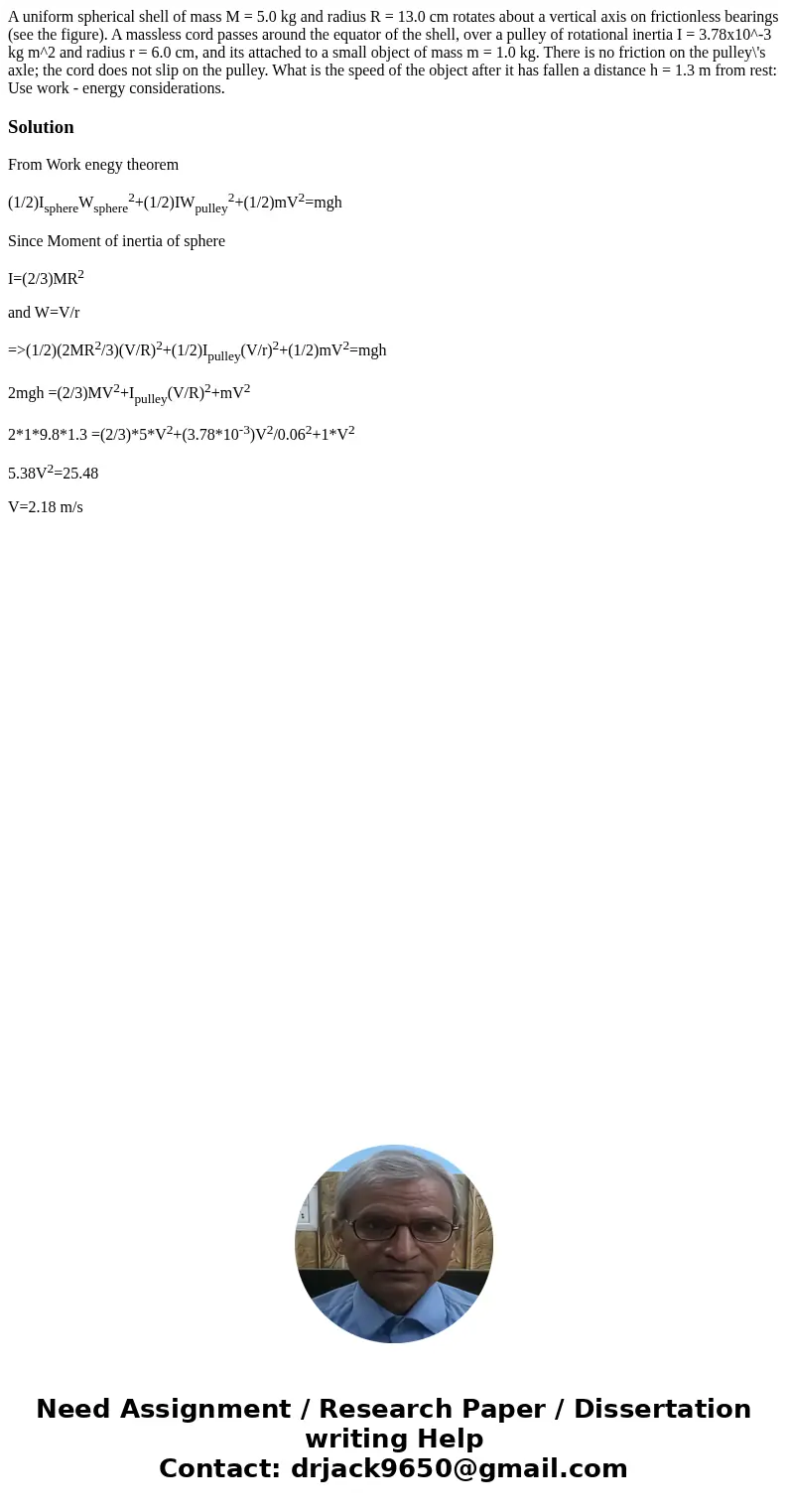A uniform spherical shell of mass M 50 kg and radius R 130
A uniform spherical shell of mass M = 5.0 kg and radius R = 13.0 cm rotates about a vertical axis on frictionless bearings (see the figure). A massless cord passes around the equator of the shell, over a pulley of rotational inertia I = 3.78x10^-3 kg m^2 and radius r = 6.0 cm, and its attached to a small object of mass m = 1.0 kg. There is no friction on the pulley\'s axle; the cord does not slip on the pulley. What is the speed of the object after it has fallen a distance h = 1.3 m from rest: Use work - energy considerations.
Solution
From Work enegy theorem
(1/2)IsphereWsphere2+(1/2)IWpulley2+(1/2)mV2=mgh
Since Moment of inertia of sphere
I=(2/3)MR2
and W=V/r
=>(1/2)(2MR2/3)(V/R)2+(1/2)Ipulley(V/r)2+(1/2)mV2=mgh
2mgh =(2/3)MV2+Ipulley(V/R)2+mV2
2*1*9.8*1.3 =(2/3)*5*V2+(3.78*10-3)V2/0.062+1*V2
5.38V2=25.48
V=2.18 m/s

 Homework Sourse
Homework Sourse